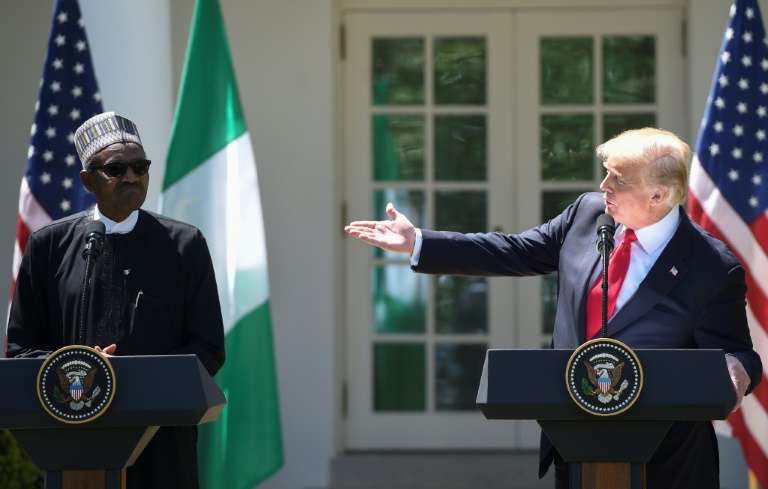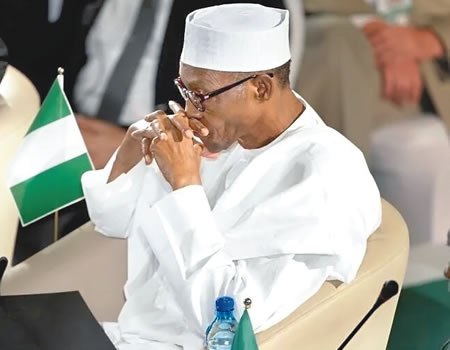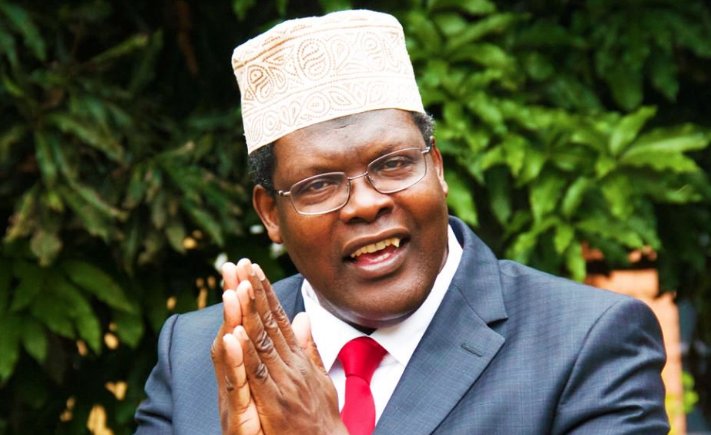
Nigerian President Muhammadu Buhari, has been accused of protecting Boko Haram members
Amnesty International says Nigerian govt protecting Boko Haram members
On the heels of aggravated Boko Haram activities in the Northern parts of Nigeria, the Amnesty International (AI) has asked the International Criminal Court (ICC) to urgently investigate Nigerian government who it has accused of protecting the terrorist group.
In a statement on Monday, the international human rights group, vent anger on the Nigerian government over failures to sanction military commanders and terrorists suspected of grievous human rights abuses in the Boko Haram war.
Together, Boko Haram and the Fulani extremists are responsible for 63 per cent of terror attacks and 88 per cent of terror-related deaths in Nigeria, according to the 2018 Global Terrorism Index released on Wednesday.
The third deadliest terror group in Nigeria in 2017 was the Bachama extremists, who were responsible for four attacks and 30 deaths.
According to the report, Nigeria ranks the 3rd most terrorised nation in the world and the first in Africa.
“The Nigerian government is unwilling and unable to meet its obligations as a member of the ICC to investigate and prosecute both Boko Haram and the Nigerian military,” the group said in its reaction to fresh findings published by the ICC that reaffirmed a widespread lack of accountability on the Nigerian government.
The ICC’s office of the prosecutor said in the December 5 report that most of the Boko-Haram-linked cases being pursued by the Nigerian government are related to membership of, support for or failure to report terrorists.
The office of the prosecutor should urgently open “a full investigation into the atrocities that have been committed in northeast Nigeria,” Amnesty International’s Africa director for research and advocacy, Netsanet Belay, said in a statement accompanying the group’s latest report titled: ‘Willingly Unable: ICC Preliminary Examination and Nigeria’s Failure to Address Impunity for International Crimes’.
Mr Belay said since the Nigerian government’s prosecution of Boko Haram has focused only on membership or support for the sect rather than the horrific crimes of key actors in the insurgency, it was obvious that Nigerian authorities have only undertaken superficial criminal proceedings regarding crimes committed by Boko Haram; only a couple of which may be relevant for the conduct that may be covered by one of the potential six cases being reviewed by ICC prosecutors.
“The Nigerian government has no intention to undertake genuine investigations’ Mr Belay emphasised. “Instead it has pursued ‘sham’ criminal proceedings to ‘shield’ perpetrators from an ICC investigation and to give a ‘veneer’ of accountability in Nigeria.”
The report has also demonstrated that ‘mass trials’ conducted against suspected members of Boko Haram since October 2017 have been so flawed that it is impossible to conclude that those who were convicted were actually guilty of any crime at all.
In fact, many of these “mass trials are an effort to give a pretence of legality to the mass unlawful detentions committed by the Nigerian military throughout the conflict, which have seen thousands die in captivity through starvation, thirst and overcrowding, Amnesty International said.
Apart from 2014 when Nigeria was ranked fourth, the country has remained in the third position in the GTI ranking since 2015.
In the latest report released on Wednesday, Iraq, a country in the Middle-East, is ranked first, a position it has held since 2014. Afghanistan has ranked second since 2013. Syria and Pakistan are ranked fourth and fifth respectively.
Others among the top 10 countries worst hit by terrorism in 2017 are Somalia (6th), India (7th), Yemen (8th), Egypt (9th), and Philippines (10th).
The report said: “Total deaths from terrorism in Nigeria fell to 1,532 in 2017, a decrease of 16 per cent from the prior year. The decline follows the 63 per cent drop in deaths in Nigeria in the preceding year, and a 34 per cent drop in 2015. This highlights the effectiveness of the counter-insurgency operations undertaken in Nigeria and its neighbours, Cameroon, Niger and Chad.
Terrorist activity in Nigeria is dominated by two groups: Boko Haram and Fulani extremists. In 2017, Boko Haram was the deadliest group in Nigeria, with both terrorism deaths and attacks increasing over the prior year. Deaths increased by 34 per cent to 1,022 while attacks increased by 62 per cent to 222.
The Fulani extremists were less active in 2017 than the prior year with terrorism deaths dropping by 60 per cent to 321, and attacks dropping by 51 per cent to 72. However, preliminary data for 2018 suggests that there has been a significant increase in violence committed by Fulani extremists.
Together, Boko Haram and the Fulani extremists are responsible for 63 per cent of terror attacks and 88 per cent of terror-related deaths in Nigeria. The third deadliest terror group in Nigeria in 2017 was the Bachama extremists, who were responsible for four attacks and 30 deaths.
Boko Haram has increased both its armed assaults and bombings as a percentage of its attacks, with deaths increasing by 33 per cent and 30 per cent respectively. Boko Haram is also notorious for its use of female and child suicide bombers. Of the 434 suicide bombers between April 2011 and June 2017, 244 were women.13
The Borno State is home to Boko Haram. It has experienced the highest level of terrorist activity in Nigeria with all deaths caused by Boko Haram. In 2017, 62 per cent of deaths in Nigeria occurred in the Borno State. The group is also active in Chad, Cameroon, and Niger, and has disrupted Foreign Direct investment and humanitarian efforts in Nigeria and its neighbouring countries.14
In 2016 Boko Haram splintered into two groups. The newer Islamic State West African Province (ISWAP) declared allegiance to ISIL in 2015.15 Both groups see themselves as affiliates of ISIL.
Other major findings of the report are: “Deaths from terrorism decreased by 27 per cent from 2016 to 2017. There were 18,814 deaths in 2017.
Ninety-four countries improved their scores on the GTI, while 46 deteriorated. g Afghanistan had more deaths from terrorism than any other country in 2017, overtaking Iraq.
Despite severe territorial and financial losses, Islamic State remained the deadliest terrorist group in 2017, even though deaths attributed to the group fell by 52 per cent from the prior year.
Iraq had the largest reduction in the number of deaths in 2017, with deaths falling from 9,783 to 4,271, a 56 per cent reduction. This was the lowest number of deaths from terrorism in Iraq since 2012.
Egypt and Somalia had the largest increases in deaths from terrorism, with deaths increasing by 123 per cent and 93 per cent respectively.
Al-Shabaab committed the deadliest attack of 2017, which killed 587 people. In Egypt, the Islamic State Sinai Province carried out the second deadliest attack, which killed 311 people.
67 countries recorded at least one death from terrorism in 2017. This is the second highest number of countries since 2002, but a significant fall from the 79 countries that recorded at least one death in 2016.
Europe had the biggest year on year percentage improvement, with total deaths falling by 75 per cent. France, Germany, and Belgium all recorded significant falls in deaths from terrorism.
The estimated economic impact of terrorism in 2017 was US$52 billion. However, the true economic impact of terrorism is likely to be much higher”, said the report.




Recent Comments